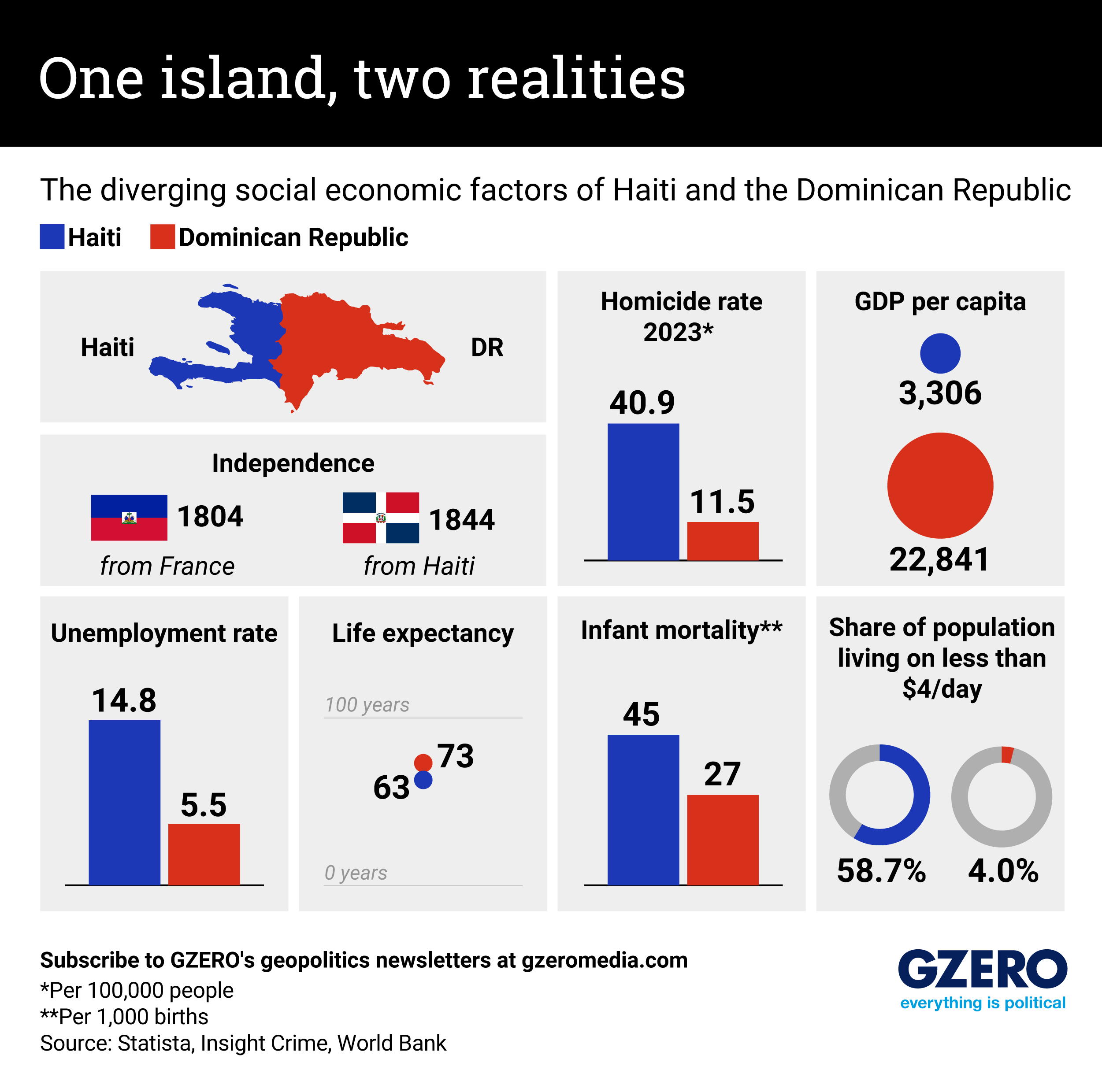Haiti, the poorest country in the Western Hemisphere, has been engulfed in violent gang warfare and without a leader since its former prime minister, Ariel Henry, was barred reentry to the country on March 12. Henry formally resigned on Thursday, and a new transitional government was sworn in.
The chaos has triggered a major wave of internal displacement, putting its border with the Dominican Republic, in a state of crisis. The Dominican Republic has doubled down on border security in response, but relations between the two countries, which share the island of Hispaniola, have long been complex.
Haiti was once the richest colony in the world. But under French rule, the island suffered from severe deforestation, leading to soil erosion, reduced agricultural productivity, and increased vulnerability to natural disasters such as hurricanes and earthquakes. When the Dominican Republic gained independence from Haiti in 1844, it introduced reforestation programs that – along with its mountain ranges – have helped it develop a more sustainable agricultural sector. But Haiti's drier land and less fertile soil have made agriculture more challenging.
While the economies of the two countries were comparable in the mid-20th century, the Dominican economy gradually improved over the subsequent decades, while Haiti, long plagued by political instability, has seen its economy deteriorate.
